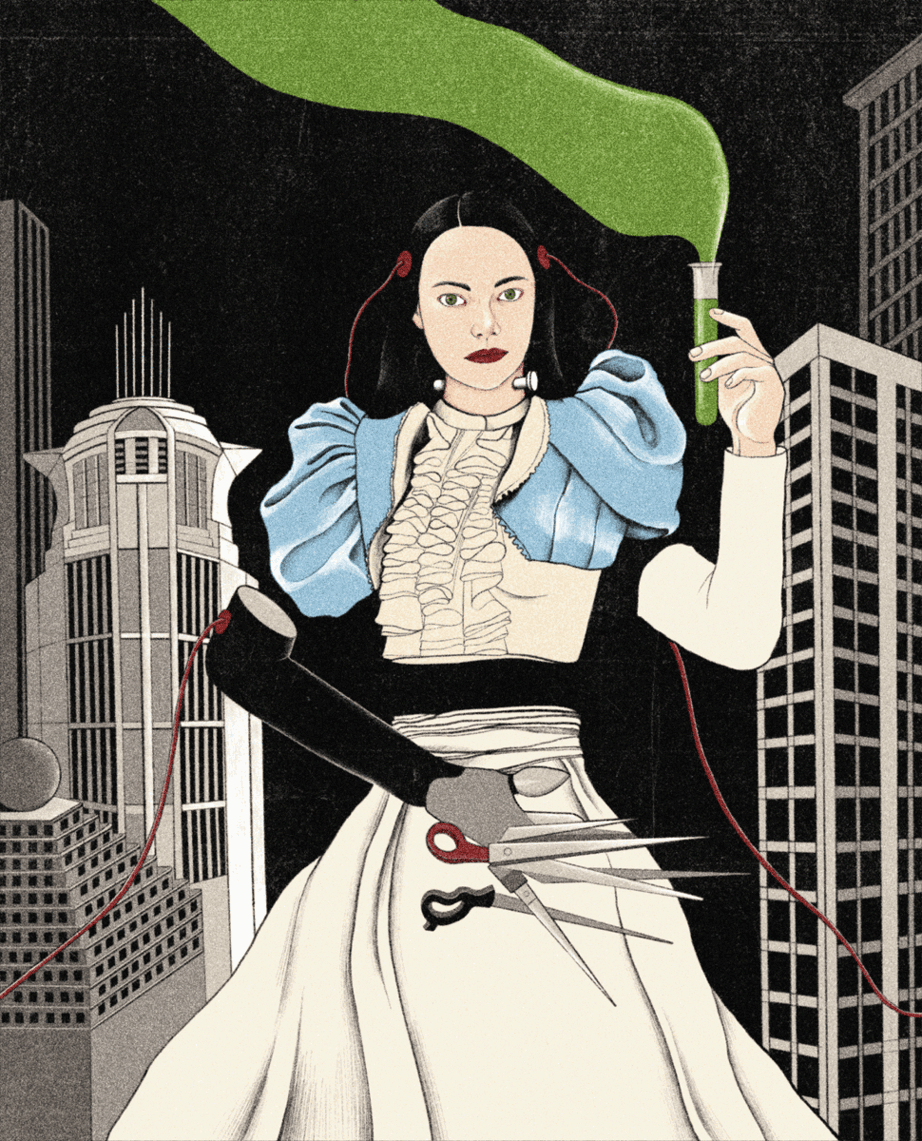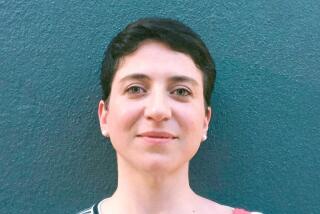A chip off the old double helix
- Share via
Iris Surrey, the narrator of Eva Hoffman’s first novel, calls it “the Weirdness.” It’s something about Iris, a healthy, pretty girl living with her mother, Elizabeth, in a college town near Chicago, that doesn’t show in the mirror. Or it’s something about Iris and her mother together. The Weirdness reveals itself in other people’s startled, evasive eyes -- the eyes of an aunt Iris meets only once; the eyes of her mother’s boyfriend, Steven, who is almost like a father to the girl before he leaves.
Iris knows nothing of her real father, and for much of her childhood she doesn’t care, her relationship with Elizabeth is so close and satisfying. “She was ... the larger part of myself, as much me as my limbs or bloodstream.... We moved in our own special atmosphere ... an amniotic fluid that incorporated us both ... She sponged me up and I felt some of her own substance passing into me
As Iris grows up, however, things begin to bother her -- the aunt’s anger, Steven’s transition from warmth to disquiet, the cruelty of schoolmates who notice that Iris looks just like her mother and spread rumors “that I was the fruit of an incestuous union between my mother and her twin brother; that my mother had murdered my father -- because he was also her father.” She becomes aware of the Weirdness and feels, like many another troubled teenager, that something is wrong with her.
At 17, Iris rifles through Elizabeth’s papers and discovers a truth that is more horrible than the rumors: She is a clone. She has no father. Her mother is, in genetic terms, her identical twin sister. Her grandparents, whom she has never met, are therefore her parents as well as Elizabeth’s. Iris is a new kind of creature on Earth, a freak, a monster. Hoffman, who left her native Poland at 13 to come to the New World, knows all about feeling different and failing to fit in. Iris’ discovery occurs about a quarter of the way through “The Secret.” The rest of the story is about her struggle to cope with her clonehood, to find an identity apart from her mother, whose DNA she shares, whose gestures she mimics, who may have done and thought everything Iris will do and think.
There are wider implications too. Hoffman sets the novel 20 years into the future, envisioning a more crowded, more polluted America in which “virtuals” have substituted for much old-fashioned reality, the nuclear family has disappeared, implants keep the elderly going indefinitely and “Human Education” has made people feel that they aren’t living their own lives so much as re-enacting tired variations on hackneyed old plots.
Hoffman, whose nonfiction works also include “Exit Into History” and “Shtetl,” is at her best when she explores Iris’ anguish in the context of technology’s threats to our traditional notions of self. Human cloning -- which in “The Secret” seems to be legal, if rare -- is just one of them. In dialogues with her “Adviser” -- something like a psychotherapist -- Iris time and again points out the inability of 20th century thinking to apply to her case.
It’s as a novel, as a tale requiring verisimilitude, that “The Secret” falters. All the characters are born-and-bred Americans, but they use British idioms: “kerb” for curb, “maths” for math, “twig on” for realize. Iris often sounds much older than she is supposed to be. Her education at a Midwestern high school, in an age dismissive of the past, is unaccountably classical -- when she quotes something, it’s likely to be “Hamlet” or from Greek myth.
Most important, Hoffman fails to convince us that Iris’ secret could be kept from her so long. She is a bright girl, and America is a relentlessly gossipy society. Can we believe that her cloning in 2005 wouldn’t have been publicized worldwide, that 17 years later she wouldn’t have heard of similar cases, that those nasty schoolmates wouldn’t hit on the right answer? Hardly. Yet the novel depends on her ignorance. That’s the real weirdness.
More to Read
Sign up for our Book Club newsletter
Get the latest news, events and more from the Los Angeles Times Book Club, and help us get L.A. reading and talking.
You may occasionally receive promotional content from the Los Angeles Times.










